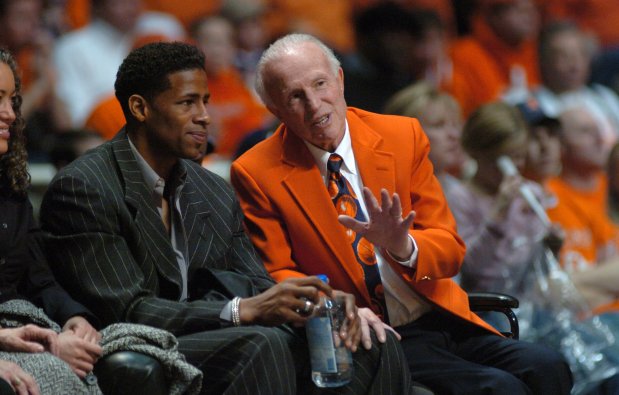Survivors and family members of victims of gun violence attested at the Democratic National Convention on Thursday to the ways shootings impacted their lives and spurred them to advocacy.
One of the most potent speeches came from Gabrielle Giffords, the former Democratic congresswoman who was wounded in a 2011 shooting in her Arizona district.
Giffords, who was shot in the head while out greeting constituents, spoke Thursday about her long road to recovery.
“I learned to walk again, one step at a time. I learned to talk again, one word at a time,” said Giffords, who appeared with her husband, Arizona Sen. Mark Kelly.
“I almost died, but I fought for life and I survived,” Giffords said, thrusting her arm into the air and drawing cheers from the crowd.
She praised Vice President Kamala Harris and endorsed her.
“Kamala can beat the gun lobby and can beat gun trafficking,” said Giffords, who opened the Giffords Law Center to track and analyze firearm legislation in all 50 states.
Harris, a former prosecutor, has advocated for more laws to stop gun violence, including reinstating a ban on assault weapons. President Joe Biden in 2023 tapped Harris to lead the first-ever federal office of gun violence prevention.
Republican nominee Donald Trump has positioned himselfdirectly against gun-control measures and downplayed a ban he instituted on bump stocks, the attachments that allow semi-automatic weapons to fire like machine guns and were used during the October 2017 shooting massacre in Las Vegas.
Harris has changed her position on some gun issues. Since becoming vice president, she has backed away from her previous support for mandatory gun buy-back programs. The policies, which she backed in 2019 while running in the Democratic presidential primary, would force millions of gun owners to sell their AR-15s and similar firearms to the government.
Harris now supports more moderate proposals such as universal background checks on gun sales.
The other survivors and family members turned advocates each told their stories Thursday, at times becoming emotional. Democrats in the arena could be seen wiping their eyes at one point as a screen behind the speakers projected the words, “Freedom From Gun Violence.”
The advocates were led by Georgia Rep. Lucy McBath, who became an activist against gun violence after her 17-year-old son was shot in 2012 by a white man who was angry over the loud music the Black teenager and his friends were playing.
McBath said she was moved to run for office after the 2018 shooting massacre at Parkland, Florida’s Marjory Stoneman Douglas High School, where 17 were killed. The Georgia Democrat won her election, flipping a House seat long held by Republicans.
“Our losses do not weaken us,” McBath said. They strengthen our resolve.”
Abbey Clements, who was teaching second grade at the Sandy Hook school in Newtown, Connecticut when a gunman in 2012 killed 26 people, 20 of them first grade children, described the day and the sounds of more than 150 gunshots ringing out.
“Hiding in the coats, trying to sing with my students, trying to read to them, trying to drown out the sounds. Terror. Crying. Running. I carry that horrific day with me,” Clements said.
As she spoke about the children and her coworkers who were killed, Clements’ voice caught as she said, “They should still be here.”
Kimberly Rubio, whose 10-year-old daughter Lexi was among the 19 children killed in the 2022 shooting at Robb Elementary School in Uvalde, Texas, became emotional as she described her daughter, right before she was killed, with her “smile that lights up the room.”
Other speakers included Melody McFadden of Charleston, South Carolina, whose mother and niece were both killed by gun violence, and Edgar Vilchez of Chicago, Illinois, who as a high school student in 2022, witnessed the drive-by shooting of a classmate. The classmate survived.
Associated Press writer Farnoush Amiri in Chicago contributed to this report.




